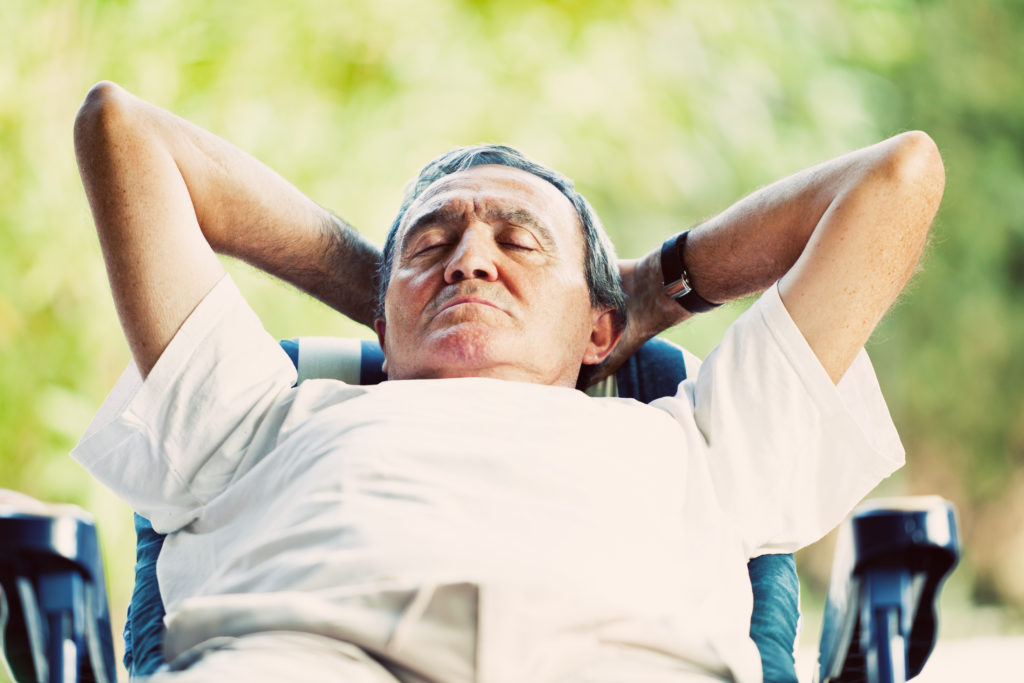Quick Hits
Daily brief research updates from the cognitive sciences
 Who wouldn’t like a daily siesta – especially when it is hot after that post lunch period! And I am sure we have all experienced that desire to sleep when it gets warmer – it pushes us to laze around.
Who wouldn’t like a daily siesta – especially when it is hot after that post lunch period! And I am sure we have all experienced that desire to sleep when it gets warmer – it pushes us to laze around.
Now we may think this is just about activity, but a group of researchers at Northwestern University in the US have peered deeper into the brain to try to find out what is happening. To do this Alpert et al. looked into the brains of fruits flies. Yes, fruit flies. You may not know this but fruit fly brains are commonly used for brain research – their brains are simple – so easier to research, easy to breed, and none of those pesky ethical limitations.
Of note is also that fruit flies have developed all over the world and are attracted to the same temperatures as human beings. They actually seem to have developed to cohabitate with human beings. And this is not the only similarity: they also seem to get dozy under similar conditions when the temperature rises post lunch.
And what did these researchers find?
Well, they managed to identify a circuit in the brain that is a heat circuit and, interestingly this is separate to another cold circuit (so not just one temperature circuit). This suggests that the circuits have distinct functions. They also think they’ve found the spot in the fly brain where these are integrated and therefore impact behaviour. This shows there is separate heat circuit in the brain that directly impacts behaviour and in our case it triggers sleepiness – and not through fatigue which is the normal process.
So, that afternoon nap on a hot day is not your imagination, it is your heat circuit in your brain activating your sleep circuits. And the research shows that an afternoon nap can be very beneficial – so maybe you shouldn’t resist!

Andy Habermacher
Andy is author of leading brains Review, Neuroleadership, and multiple other books. He has been intensively involved in writing and research into neuroleadership and is considered one of Europe’s leading experts. He is also a well-known public speaker, speaking on the brain and human behaviour.
Andy is also a masters athlete (middle distance running) and competes regularly at international competitions (and holds a few national records in his age category).
Reference
Michael H. Alpert, Hamin Gil, Alessia Para, Marco Gallio.
A thermometer circuit for hot temperature adjusts Drosophila behavior to persistent heat.
Current Biology, 2022
DOI: 10.1016/j.cub.2022.07.060
More Quick Hits
Your Job Can Protect You From Cognitive Decline
Quick HitsDaily brief research updates from the cognitive sciences f you have the right job that is. First let’s understand what the researchers were investigating. There is something strange going on with Alzheimer’s - we know that in Alzheimer’s...
How Nature Is Good For Your Health
Quick HitsDaily brief research updates from the cognitive sciences have reported multiple times how nature is good for your health. For example, in my article on the simple benefits of walking I also show how nature helps in multiple ways such a...
Do Your Chores, You’ll Live Longer – And Better!
Quick HitsDaily brief research updates from the cognitive sciences o, I haven’t been paid to write this by irate spouses or parents! Fact is doing the chores could be very beneficial to your wellbeing. How so you may ask? Well, I admit I have...
Why Having a Hit Reduces Creativity
Quick HitsDaily brief research updates from the cognitive sciences n music this happens often – a band lands a hit but then fails to do anything special again. A well-known occurrence with hits like Tequila in 1958 being the ultimate one-hit wonder...
The Surprising Results Of How Music Reduces Pain in Your Brain
Quick HitsDaily brief research updates from the cognitive sciences hen you’re in pain any form of relief is welcome – we tend to immediately revert to pain killers but there are many other methods of, at least, reducing pain. I have recently...
Smartphones Improve Your Memory
Quick HitsDaily brief research updates from the cognitive sciencesany people believe that using smartphones and other electronic devices is ruining our memories and ability to think or simply use our brains. Research has shown a more nuanced...






